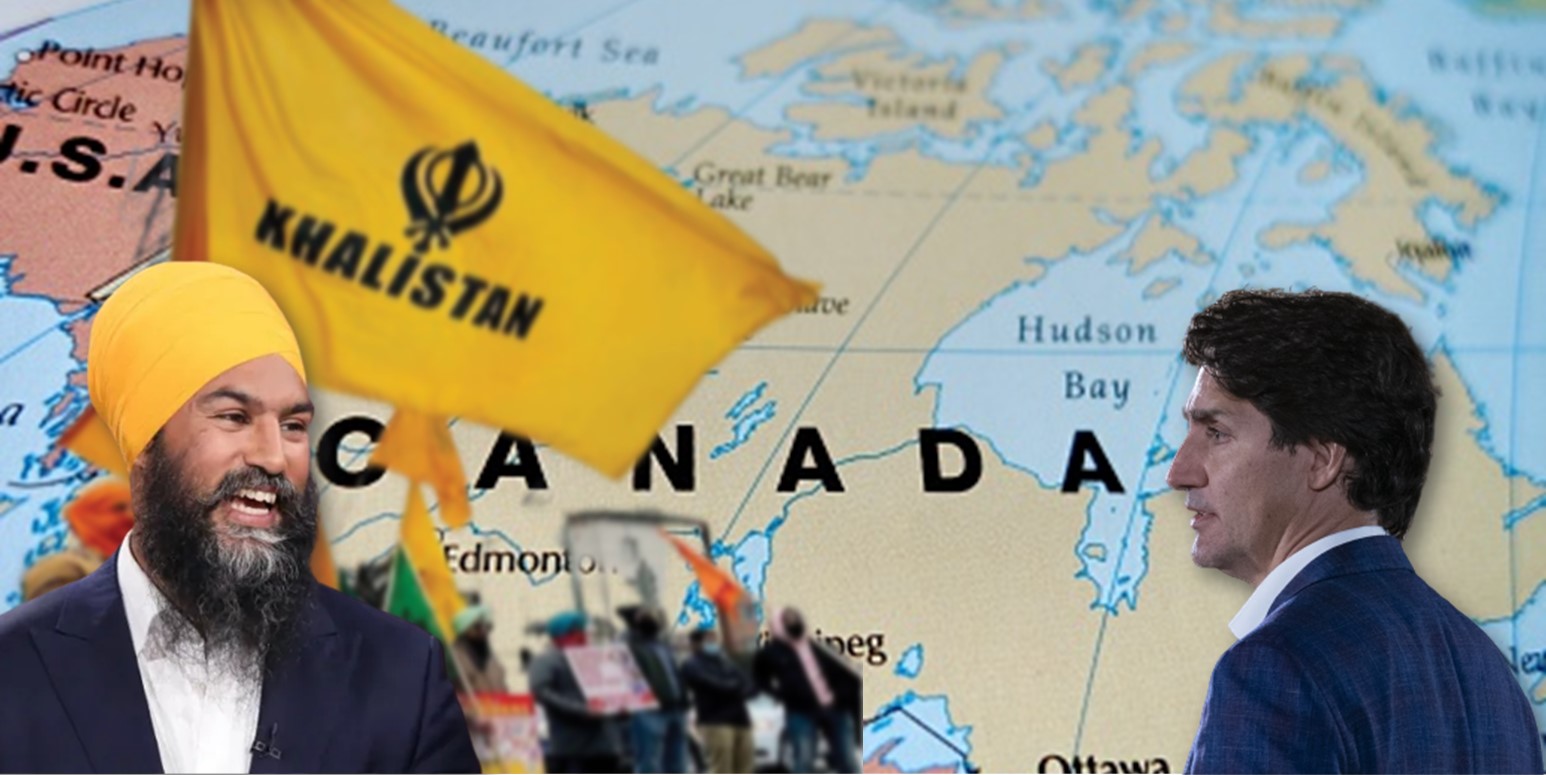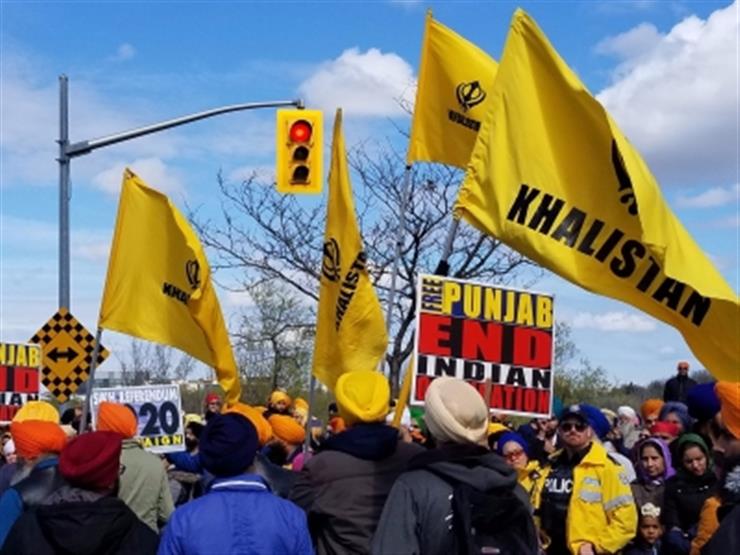Canada has announced its suspicion of Indian government involvement in the assassination of a Sikh separatist leader in British Columbia back in June; this revelation has further strained diplomatic relations between the two nations.
In an emergency statement to the House of Commons, Prime Minister Justin Trudeau emphasized that any role of a foreign government in the murder of a Canadian citizen constitutes “an unacceptable violation of our sovereignty.”
Hardeep Singh Nijjar, 45, was fatally shot on June 18 outside a Sikh temple in Surrey, a Vancouver suburb with a significant Sikh population. Nijjar had been a vocal supporter of an independent Khalistani state and was designated as a “terrorist” by India in July 2020.
Trudeau revealed that Canadian security agencies have been actively investigating credible allegations of potential links between Indian government agents and Nijjar’s murder.
He further went on to ascertain that he had raised this issue directly with Indian Prime Minister Narendra Modi during the recent G20 summit in New Delhi, urging India to cooperate with Canada to get to the bottom of this matter.

The Diplomatic Tight Rope
This development has escalated tensions between Canada and India, with India expressing displeasure over Sikh separatist activities taking place in Canada.
In response to these allegations, Canada expelled India’s top intelligence agent within the country on Monday, as confirmed by Foreign Minister Melanie Joly; however, the Indian high commission in Ottawa has not issued any comments in response to these allegations.
India Strongly Rejects The Claim
India, on its part, has vehemently rejected Justin Trudeau’s allegations regarding Nijjar’s killing, with The Ministry of External Affairs releasing a statement describing these allegations as “absurd and motivated.”
However, Canada’s decision to expel an Indian diplomat suspected of links to the murder has further exacerbated the situation.
The Ministry emphasized India’s commitment to the rule of law and criticized Canada for its perceived inaction regarding the strengthening Khalistani movement within its borders.
It argued that unsubstantiated allegations divert attention from the real issue, which is the presence of Khalistani terrorists and extremists who have found refuge in Canada and continue to pose a threat to India’s sovereignty and territorial integrity.
This dispute is a significant development in the ongoing tensions between the two nations, with Sikh separatism remaining a contentious issue, and the repercussions extend beyond diplomatic matters, potentially affecting trade ties, as talks on a proposed trade deal have been frozen.
The United States has also expressed concern about these allegations, highlighting the international implications of this dispute.

Canada and the Khalistan Movement
The Khalistan separatist movement has been controversial between Canada, which is home to the second-largest Sikh population, and India.
New Delhi has repeatedly expressed concerns about Canada serving as a refuge for individuals associated with the Khalistani movement.
What is Khalistan?
Khalistan is a proposed Sikh homeland that activists aim to establish in Punjab and some surrounding Indian territory and cities like Brampton and Mississauga west of Toronto, as well as Surrey in British Columbia, with significant Indo-Canadian populations, have become focal points for the independence movement.
What will the referendum accomplish?
The referendum, unofficial and lacking binding authority, has stirred passionate emotions and fueled incidents of anti-Hindu sentiment in Canada, according to Manish, India’s acting high commissioner, who is known by a single name.
Gurpatwant Singh Pannun of Sikhs for Justice, the organizer of the referendum, emphasized a peaceful approach, stating the importance of allowing people’s voices to be heard through voting.
After a pandemic-related delay, voting began in the UK, continued in Italy, and extended to Canada and Australia. The most recent vote took place in Vancouver on September 13.
The independent commission established by Sikhs for Justice to oversee the process is working on a plan to enable residents of Punjab to vote, although it is expected that New Delhi will oppose such attempts.

Who are the main groups?
Sikhs for Justice serves as the primary organizer of the referendum. However, New Delhi views this organization with concern and has designated it as a terrorist group. Efforts to secure an Interpol arrest warrant for Singh Pannun, a New York-based lawyer with dual U.S. and Canadian citizenship leading the group, have been unsuccessful.
Indian media, often aligned with Prime Minister Narendra Modi’s BJP government, tends to portray the organization and its founder in negative terms.
Recent incidents, such as the defacement of a Hindu temple in Toronto and the vandalism of a nearby Mahatma Gandhi statue with pro-independence graffiti, have raised alarm over the use of Canadian territory for activities that could potentially jeopardize India’s security and interests.
So, why has tension reached Canada?
Support for Khalistan is significantly stronger among the Sikh diaspora in places like Canada than among Sikhs in Punjab, where they constitute 58 per cent of the population.
One prominent Sikh-Canadian in Ontario, a longtime opponent of the Khalistani movement, revealed the reluctance to publicly voice opposing opinions due to the movement’s influence in Canada.
This individual, who requested anonymity, shared an incident in which a relative was criticized, and Khalistani supporters vandalized their house for being involved with a Hindu-Canadian woman.
The Sikh separatist cause had quieted down after years of turmoil, culminating in the 1985 Air India bombing that killed 329 people. The attack was attributed to Sikh extremists based in Canada, who were incensed by Indian troops’ actions at the Golden Temple in 1984, Sikhism’s holiest site, aimed at ousting armed rebels.
This event led to a wave of violence in which at least 3,000 Sikhs were killed by rampaging Hindus after two Sikh bodyguards assassinated Prime Minister Indira Gandhi.

Trade Ties
The diplomatic tensions between Canada and India are now posing a significant threat to their trade relations, resulting in the suspension of talks on a proposed trade deal. While Canada has not provided extensive details regarding the impasse, India has cited “certain political developments” as a contributing factor.
In 2022, bilateral trade between the two countries amounted to just C$13.7 billion ($10.2 billion) within Canada’s total trade volume of C$1.52 trillion, as reported by Statistics Canada.
As mentioned before, The United States expressed deep concern about the allegations mentioned by Prime Minister Trudeau. U.S. National Security Council spokesperson Adrienne Watson released a statement late on Monday night, acknowledging the seriousness of the situation.
It’s important to note that Trudeau did not directly accuse India of involvement in the murder, and Foreign Minister Joly later employed more cautious language, stating that if the allegations were proven true, they would be deemed unacceptable.
In relation to the murder, British Columbia’s Integrated Homicide Investigation Team revealed last month that there were three suspects, though no arrests have been made.
Canada boasts the highest population of Sikhs outside of their home state of Punjab in India, and the country has witnessed numerous demonstrations that have stirred tensions with India.
Likewise, Canada is home to one of the largest overseas communities of Indian origin, numbering approximately 1.4 million individuals out of a total Canadian population of 40 million, and the 2021 census reported that about 770,000 people identified Sikhism as their religion.
Public Safety Minister Dominic LeBlanc disclosed that several senior Canadian government officials recently visited India to convey Ottawa’s concerns.
In April, India requested increased monitoring of UK-based supporters of the Sikh separatist movement from Britain. This request came after protesters, displaying “Khalistan” banners, removed the Indian flag from a diplomatic mission’s building in London, further heightening tensions.
The Last Bit, The strains in Canada-India relations, fueled by suspicions related to the Sikh leader’s murder, have cast a shadow over their longstanding diplomatic partnership.
As trade talks remain suspended and accusations linger, it is evident that resolving these issues will require diplomatic finesse and a commitment to dialogue.



